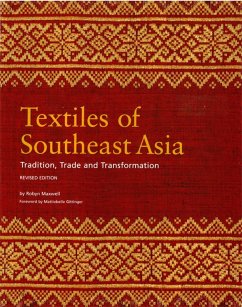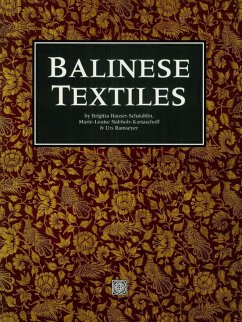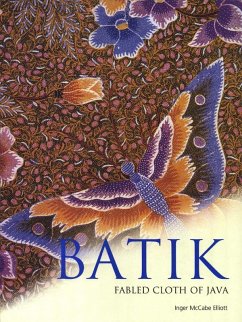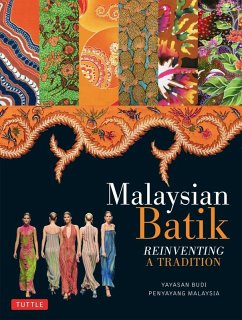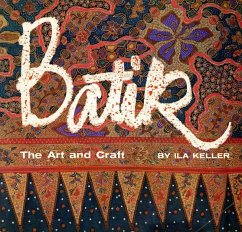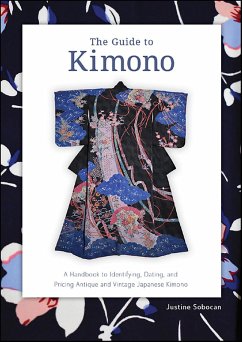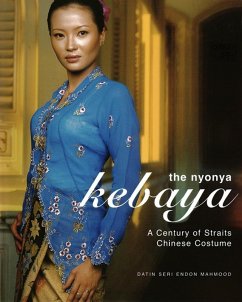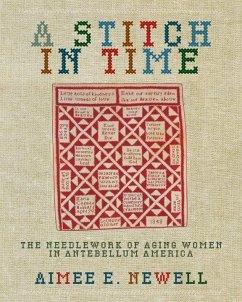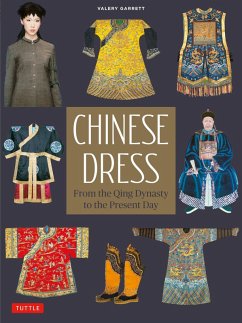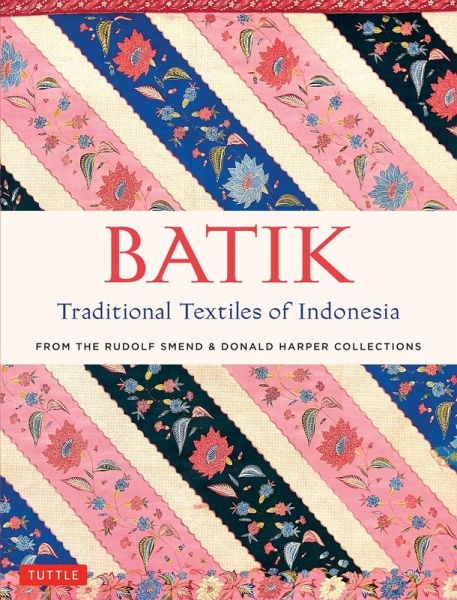
Batik, Traditional Textiles of Indonesia (eBook, ePUB)
From The Rudolf Smend & Donald Harper Collections
Versandkostenfrei!
Sofort per Download lieferbar
16,95 €
inkl. MwSt.
Weitere Ausgaben:

PAYBACK Punkte
8 °P sammeln!
Batik occupies a special place in Indonesian culture. Each fabric has a rich story to tellas a reflection of the nation's religious beliefs, sophisticated court cultures and cosmopolitan history.The extraordinary textiles in this book are from the collections of Rudolf Smend and Donald Harper. Most date from the period 1880 to 1930 when the art of batik reached its apogee. Having collected historical batik for over thirty years and published two books on the subject, Rudolf Smend has invited his friend and fellow batik specialist Donald Harper to contribute his fine collection to this publicat...
Batik occupies a special place in Indonesian culture. Each fabric has a rich story to tellas a reflection of the nation's religious beliefs, sophisticated court cultures and cosmopolitan history.
The extraordinary textiles in this book are from the collections of Rudolf Smend and Donald Harper. Most date from the period 1880 to 1930 when the art of batik reached its apogee. Having collected historical batik for over thirty years and published two books on the subject, Rudolf Smend has invited his friend and fellow batik specialist Donald Harper to contribute his fine collection to this publication as well. None of the batik in this book have been published before. They represent an exquisite cross-section of the batik production of Javathe most important batik-producing region in the world.
The cloths are complemented by vintage photographs from the first quarter of the 20th century demonstrating how the batik were worn at court and at home. Three are from museums in Dresden and Cologne, while three are from the private collection of Leo Haks. The others have been collected over the past 30 years from private sources in Java. The captions are by Maria Wronska-Friend, an ethnologist and batik expert who frequently visits Indonesian batik centers and has worked for many years as an anthropologist in Papua New Guinea. Her contributions provide fundamental knowledge for lovers of this art form while at the same time providing new insights for experts.
Rudolf Smend has invited other batik aficionados of his generation to share their passion for batik in this book. Inger McCabe Elliott, author of the bestselling Batik: Fabled Cloth of Java has contributed her lifelong experience. Other authorities like Annegret Haake, Brigitte Khan Majlis and Jonathan Hope share their views and expertise in these pages. This book represents a labor of love and a lifetime of friendship for the two authors, who hope it will provide inspiration to a whole new generation of batik lovers.
The extraordinary textiles in this book are from the collections of Rudolf Smend and Donald Harper. Most date from the period 1880 to 1930 when the art of batik reached its apogee. Having collected historical batik for over thirty years and published two books on the subject, Rudolf Smend has invited his friend and fellow batik specialist Donald Harper to contribute his fine collection to this publication as well. None of the batik in this book have been published before. They represent an exquisite cross-section of the batik production of Javathe most important batik-producing region in the world.
The cloths are complemented by vintage photographs from the first quarter of the 20th century demonstrating how the batik were worn at court and at home. Three are from museums in Dresden and Cologne, while three are from the private collection of Leo Haks. The others have been collected over the past 30 years from private sources in Java. The captions are by Maria Wronska-Friend, an ethnologist and batik expert who frequently visits Indonesian batik centers and has worked for many years as an anthropologist in Papua New Guinea. Her contributions provide fundamental knowledge for lovers of this art form while at the same time providing new insights for experts.
Rudolf Smend has invited other batik aficionados of his generation to share their passion for batik in this book. Inger McCabe Elliott, author of the bestselling Batik: Fabled Cloth of Java has contributed her lifelong experience. Other authorities like Annegret Haake, Brigitte Khan Majlis and Jonathan Hope share their views and expertise in these pages. This book represents a labor of love and a lifetime of friendship for the two authors, who hope it will provide inspiration to a whole new generation of batik lovers.
Dieser Download kann aus rechtlichen Gründen nur mit Rechnungsadresse in A, D ausgeliefert werden.




